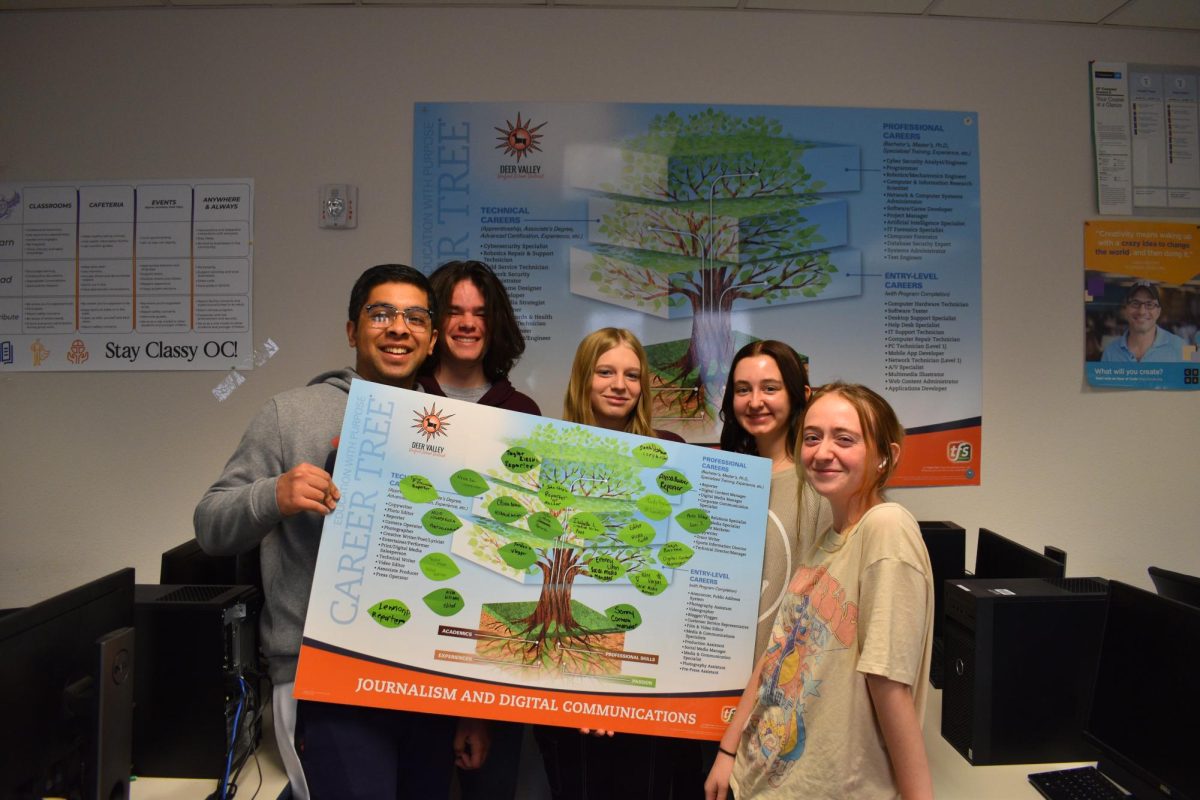With college admissions season in full swing at OHS, upperclassmen not only deal with the struggle of getting into a university, but must also begin to select career paths.
The unfortunate reality is that a great deal of young adults are abandoning their humanities majors for STEM (Science, Technology, Engineering, and Math) fields, even when they have utterly no interest in the subject matter. The notion of a useless degree has become popularized, and the stigma behind certain academic paths are consequently influencing student choices.
“I do not think there’s such a thing as useless degrees because I never think education is useless,” said Tracey Heath, counselor.
The pursuit of a high-paying job directly after graduation is a primary reason students leave fields of study not based in economics or engineering. However, a relatively unknown fact is that non-STEM careers catch up financially in the long run.
“Sometimes people are choosing majors that they don’t necessarily want because they want to make the money,” Heath said.
Unfortunately, low-income students are disproportionately affected when faced with the stress of choosing a profession. They need more than the automatic merit scholarships universities may offer and cannot afford to graduate with student loan debt.
“I would never want students to not go to college and pursue their dreams because they can’t afford it… all of us in the counseling department really push students to look for private scholarships. There’s so much access to them, there are millions and millions of dollars to be had in scholarship money. Students just need to look for it,” Heath said.
If students are unsure of what they are truly good at, and how to apply that in the future, the counseling office offers effective career tests.
“We actually can see it right in their faces when they’re taking the test. I have found when we give those career tests, if they answer the questions honestly and thoughtfully, it does get some students thinking about it,” Heath said.
A common fear is finding oneself trapped in or confined to a major. Luckily, the declaration made to a college right out of high school is not permanent and rather flexible.
“Once you’re in and you’re a freshman and you’re taking all of these different types of classes, it is not difficult to change your major. It’s easier earlier in your college career,” Heath said.
The future of every student depends on what they ultimately want. Paths can be tailored to individual aspirations, and a middle ground can be found.
“There’s a lot of occupations out there where you only need an internship, or go straight into the field, or you need a certification. I don’t think you necessarily need a degree in all areas to become successful,” said Lauren Tessmer, CTE teacher.
On occasion, a degree is not enough to reach desired top-level and prominent positions. There are other factors that contribute to success.
“Any of our CTE programs offer an internship program so the students can get credit for working in the real world, and getting that networking and experience,” Tessmer said.
When applying for jobs, it is crucial to remember that companies and employers seek a wide variety of skill sets.
“Even companies that are centered around one specific thing want a diverse workforce in the way that people think and approach problems,” said Holly Maxwell, English teacher.
The most dangerous misconception is that career paths are limited with a humanities degree. Upon further research, students discover that there are a plethora of valuable jobs available.
“We have something called a career tree. It basically allows students to see what different careers are out there and pinpoint what’s right for them,” Tessmer said.
The pursuit of a humanities degree is not arbitrary. Passion for the study of culture, including literature, the arts, history, and philosophy yields critical thinking. Humanities and STEM intersect and influence one another.
“The humanities are very important because they focus on why we are creating things and how it is going to impact human beings…we still need to have that balance and communicate those ideas effectively to other people that don’t necessarily have that specialized knowledge,” Maxwell said.
As artificial intelligence becomes integrated into daily life, people may be under the impression that jobs are disappearing, especially those that involve communication and writing. In actuality, the opposite is true and particular occupations may simply evolve.
“I think they’re not being taken away, I think with as far as we are going, and as far as we have come with technology, that in the future there’s way more jobs, and endless possibilities,” Heath said.
Ultimately, the presumption that a stereotypical “useless” degree serves no purpose because the resulting career is “unproductive” to both the individual and society is not only false, but disregards what drives culture forward.
“Art and music and writing add so much to the human experience and just add color and depth to our everyday lives. I don’t think anyone wants to live in a world where that’s not valued and it’s just stagnant because we’ve steered everyone away from exploring the humanities,” Maxwell said.



